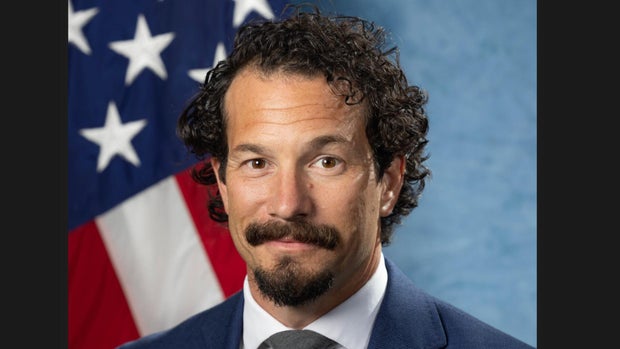When the FBI fired five veteran agents earlier this month, Director Kash Patel offered no explanation.
“There is a despicable purge underway of senior FBI officials, all of whom have risen in their careers as nonpartisan, and who have been targeted for vindictive, political purposes,” said Mark Zaid, a whistleblower attorney who represents a number of federal workers dismissed under President Trump.
Without any public comment from FBI or Justice Department officials, the agents, including, Brian Driscoll, who served for a short time as acting director at the start of the Trump administration, and Steven Jensen, head of the powerful Washington field office, were summarily fired and given little explanation for their removal. None had reached retirement age, meaning the abrupt dismissals will deprive them of their full pensions. One agent’s expulsion came a month after his wife died of cancer.
By outward appearances, former acting FBI director was in good standing
Some of the agents may have been targeted solely because they worked on one or more of the criminal investigations of Mr. Trump, while others who were ousted in an earlier spate of firings worked on the Biden administration’s Jan. 6 investigations, sources close to the agents said. But the most senior agent, Driscoll, by outward appearances, was in good standing with Patel.
FBI
Driscoll, a highly decorated agent who took part in numerous daring counterterrorism operations, began his short stint as acting director with what many agents viewed as a singular act of bravery, resisting calls from a top Trump appointee at the Justice Department to turn over the names of FBI employees who had participated in the Jan. 6 investigation. Nevertheless, Patel kept Driscoll on after his Senate confirmation, putting him in a high-profile post as head of the bureau’s Critical Incident Response Group, which oversees the FBI’s elite Hostage Rescue Team and its aviation unit.
Jensen, a veteran agent who helped oversee the Jan. 6 investigation from his position as chief of the FBI’s domestic terrorism section, was given a significant promotion by Patel to be the assistant director in charge of the Washington Field Office, one of the largest outposts in the country.
Yet there are also some indications that both men may have crossed FBI leadership over loyalty and personnel matters.
Some agents suspect political interference
Patel promised senators during that hearing, “There will be no retributive actions taken by any FBI, should I be confirmed as FBI director.”
“When we start purging agents for doing their jobs, instead of toeing a partisan line, we weaken our defense against everything from violent crime to foreign threats, and that makes us all less safe,” Warner said.
When asked who ordered the termination of the agents, the FBI declined to comment. A White House official deferred to the FBI to discuss bureau personnel matters.
“The suspendables”
There are other factors that have led some sources close to the agents and lawyers representing them to question whether the abrupt removals were the result of outside political interference, possibly by the White House.
One question surrounds the role of a small band of right-leaning former agents who clashed with FBI leadership under directors James Comey and Christopher Wray and have been vocal critics of a bureau they believe was “weaponized” against them.
Among them is Kyle Seraphin, one of several former FBI agents and whistleblowers who were suspended or had their security clearances revoked for alleged misconduct during the Biden administration. The former agents, including Seraphin, have referred to themselves as “the suspendables.” They have been targeting FBI officials they believe to be politically motivated.
Seraphin has been among the most outspoken – and effective – members of the group. He has at times been critical of Patel for not aggressively and swiftly cleaning house at the bureau, but he has also had Patel’s ear. Sources say he exercises considerable influence from his social media perch on X and his podcast, “The Kyle Seraphin Show.”
Seraphin has publicly claimed some of the credit for last week’s purge. On August 4, he posted a thread on X under the heading “VETTING CRISIS CONTINUES,” in which he identified one of the fired agents, Christopher M. Meyer. Meyer had been serving as one of the pilots of the governmental planes used by Patel until he was notified of his termination.
Seraphin had publicly speculated, correctly it turned out, that Meyer had previously been on a squad based in the Washington Field Office that investigated Mr. Trump’s alleged mishandling of classified documents and conducted a search of Mr. Trump’s Mar-a-Lago estate. The Justice Department brought criminal charges against Mr. Trump over the discovery of documents, but a judge eventually dismissed the case.
How the firings unfolded
The fifth agent fired earlier this month was Spencer Evans, who had been the special agent in charge of the FBI’s Nevada field office until earlier this summer, when he was abruptly told he was being transferred to Huntsville, Alabama. By then, Trump supporters, including Seraphin, had been publicly critical of him over his enforcement of FBI COVID policies during the tenure of former FBI Director Christpher Wray.
In April, Seraphin posted this on X:
“After @Kash_Patel was nominated, he asked me about people in the FBI who were problems. I said Spencer Evans, the SAC of Las Vegas, was the man who PERSONALLY denied the religious accommodations for Covid 19 shots and testing protocols.”
Seraphin’s post continued: “Kash said ‘Gone.'”
Seraphin attached a video to his post that showed that months after that conversation, Evans was still leading the Las Vegas FBI office, and Patel was praising its work in tracking down criminals.
Then, last Wednesday, two hours before getting into his car to drive across the country for his new assignment, Evans received a call notifying him that he too was being terminated. He was given no reason.
Two days later Evans received a formal termination letter signed by Patel. It said Evans “demonstrated a lack of reasonableness and overzealousness in the implementation of COVID-19 protocols and policies.”
Graham Kates
contributed to this report.



